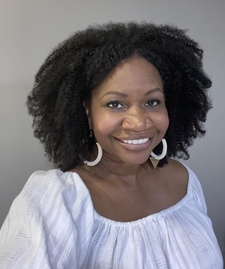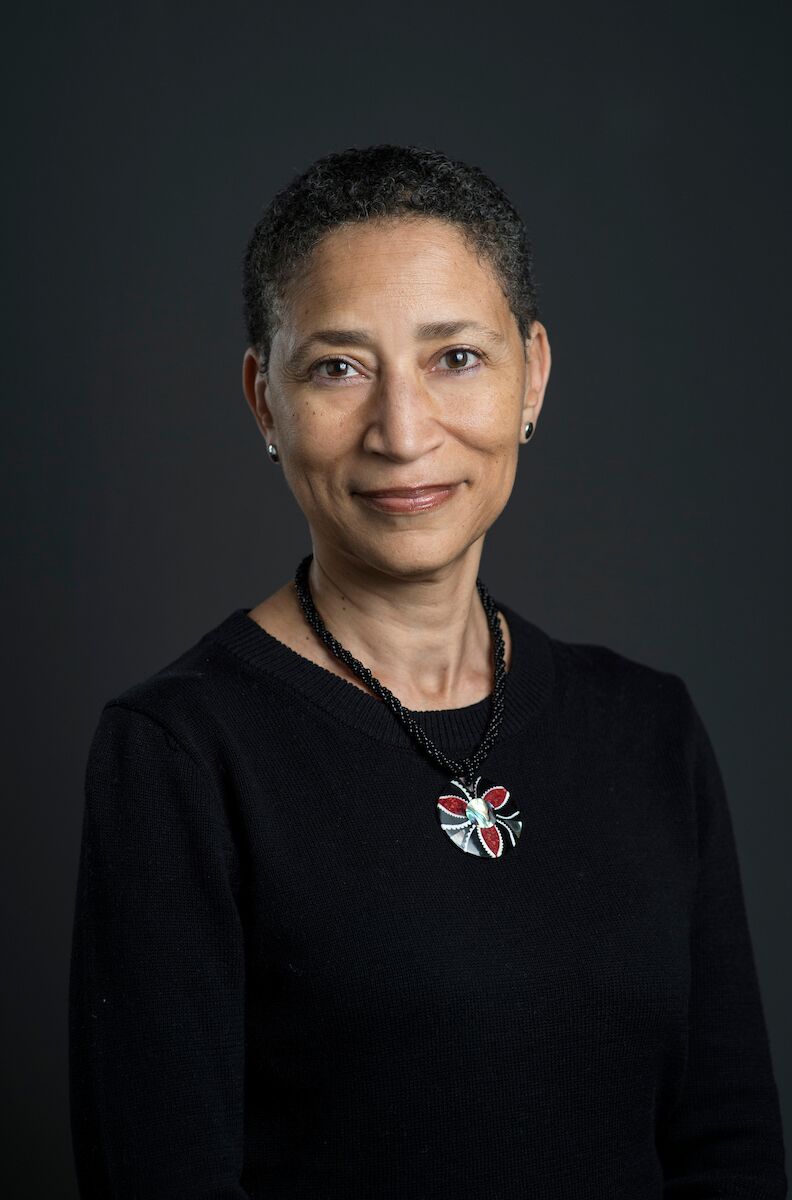Historical Perspectives On Contemporary Issues
Black Maternal Health: Historical and Reproductive Justice Reckonings
A forum held online in collaboration with the New York Academy of Medicine on October 1, 2020.
In this timely and thought-provoking presentation, Dr. Deirdre Cooper Owens (University of Nebraska-Lincoln) and Dr. Lynn Roberts (CUNY) discuss how slavery and the history of reproductive medicine intersect, the impact of medical racism on Black birthing people, the national reproductive justice movement, and recent efforts to address racial inequalities in maternal mortality and morbidity in New York City.
Chanel Portia-Albert, Founder and Chief Operating Officer of Ancient Song Doula Services, moderated this event, and singer/songwriter, actress, poet, educator, and writer Lacresha Berry provided an artistic performance at intermission.
Questions or comments about this event or others like it? Let us know.
Featuring
 Deirdre Cooper Owens
University of Nebraska-Lincoln
Deirdre Cooper Owens
University of Nebraska-Lincoln
 Lynn Roberts
City University of New York (CUNY)
Lynn Roberts
City University of New York (CUNY)
Lynn Roberts earned a BS in human development from Howard University (1984) and a PhD in Human Services Studies from Cornell University (1991). She is Associate Dean of Student Affairs & Alumni Relations and a tenured faculty member in the CUNY Graduate School of Public Health and Health Policy. Prior to CUNY, she oversaw the development, implementation and evaluation of several programs for women and youth in NYC. She is an emeritus board member of the Sistersong Women of Color Reproductive Justice Collective and co-edited the anthology, Radical Reproductive Justice: Foundations, Theory, Practice, Critique (Feminist Press, November 2017).
Insights from the Collections
The Consortium's collections provide many opportunities to learn more about the history of reproductive medicine, maternal morbidity and mortality, and racial inequities in science and medicine.
Our cross-institutional search tool allows researchers to investigate materials across multiple institutions from a single interface. With more than 4.4 million catalog records of rare books and manuscripts, the Consortium's search hub offers scholars and the public the ability to identify and locate relevant materials.
Search the Consortium search hub.
Some archival materials related to this topic include:
Building the Case for Environmental and Reproductive Justice in the Bronx, New York Academy of Medicine
The Story of My Life, by J. Marion Sims, New York Academy of Medicine
Maternity Care Coalition (MCC) Records, University of Pennsylvania
Women's Health Concerns Committee Records, University of Pennsylvania
Physicians Forum Collection, University of Pennsylvania
Bert Hansen Collection of Sigerist Circle Material, University of Pennsylvania
Related publications from our speakers:
Medical Bondage: Race, Gender, and the Origins of American Gynecology, by Deirdre Cooper Owens; Georgia, 2017.
Radical Reproductive Justice: Foundations, Theory, Practice, Critique, edited by Loretta J. Ross, Lynn Roberts, Erika Derkas, Whitney Peoples, and Pamela Bridgewater Toure; Feminist Press, 2017.
See also recent work from our fellows:
Colored Insane: Slavery, Asylums, and Mental Illness in the 19th Century, Diana Louis
Abolition and the Making of Scientific Racism in the Anglo-Atlantic, Sean M. Smith
By Their Locks You Shall Know Them: Race, Science, and Hair in the Nineteenth Century, Timothy Minella
The Peculiar Institution and the Making of Modern Psychiatry, 1840-1880, by Wendy Gonaver; UNC, 2019.
Treating the Black Body: Race and Medicine in American Culture, 1800-1861, Christopher Willoughby
Deirdre Cooper Owens is the Linda and Charles Wilson Professor in the History of Medicine and Director of the Humanities in Medicine program at the University of Nebraska-Lincoln. She is an Organization of American Historians' (OAH) Distinguished Lecturer, a past American College of Obstetricians and Gynecologists Research Fellow, and has won a number of prestigious honors for her scholarly and advocacy work in reproductive and birthing justice. A popular public speaker, Dr. Cooper Owens has spoken widely across the U.S. and Europe. She has published articles, essays, book chapters, and think pieces on a number of issues that concern African American experiences and reproductive justice. Her first book, Medical Bondage: Race, Gender, and the Origins of American Gynecology (Univ. of Georgia Press, 2017) won the 2018 Darlene Clark Hine Book Award from the Organization of American Historians as the best book written in African American women's and gender history.